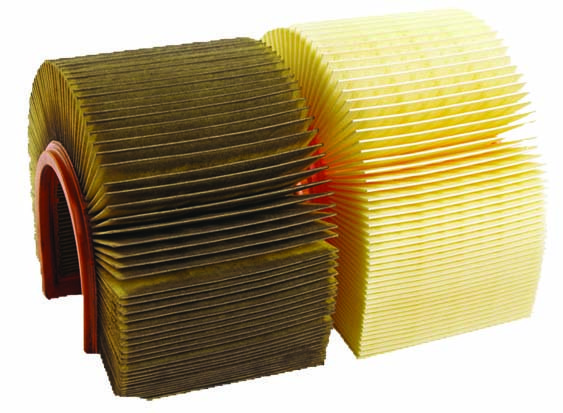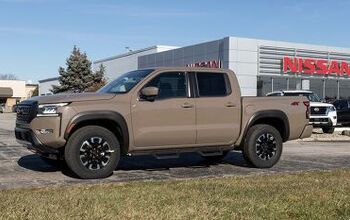Replacing Clogged Air Filters Won't Really Improve Fuel Economy On Modern Cars, Though It Will Improve Performance

The contrarian in me loves it when conventional wisdom is proven to be not so wise. For decades, even before the first oil crisis of the 1970s, motorists have been told that making sure that your air filter is clean is one of the ways that you can improve your fuel economy. It’s intuitive to think that a clogged air filter will affect the way an engine “breathes”, how efficiently it can get gases in and out of the combustion chamber and how that might decrease fuel economy. That may have made sense decades ago, however it turns out that two different studies, one on gasoline engines and the other on diesels, performed by a team at the Oak Ridge National Laboratory, show that the fuel economy of modern, digitally controlled fuel injected engines isn’t significantly affected by the state of their air cleaners’ cleanliness. What made sense in the era or carburetors may no longer be applicable today. Apparently the engines’ ECUs working to keep emissions in spec are capable of leaning out the fuel mixture to account for a dirty air filter restricting airflow into the engine, resulting in insignificant drops in fuel economy. Though dirty air filters didn’t materially affect fuel economy in the modern cars, they did experience a decrease in acceleration performance so it’s still a good idea to replace a dirty air filter.
Abstracts of the studies after the jump.
Thomas, J., West, B., Huff, S., and Norman, K., “Effect of Intake Air Filter Condition on Light-Duty Gasoline Vehicles,” SAE Technical Paper 2012-01-1717, 2012, doi:10.4271/2012-01-1717. ( full study available for purchase from the SAE here):
Proper maintenance can help vehicles perform as designed, positively affecting fuel economy, emissions, and the overall drivability. This effort investigates the effect of one maintenance factor, intake air filter replacement, with primary focus on vehicle fuel economy, but also examining emissions and performance. Older studies, dealing with carbureted gasoline vehicles, have indicated that replacing a clogged or dirty air filter can improve vehicle fuel economy and conversely that a dirty air filter can be significantly detrimental to fuel economy. The effect of clogged air filters on the fuel economy, acceleration and emissions of five gasoline fueled vehicles is examined. Four of these were modern vehicles, featuring closed-loop control and ranging in model year from 2003 to 2007. Three vehicles were powered by naturally aspirated, port fuel injection (PFI) engines of differing size and cylinder configuration: an inline 4, a V6 and a V8. A turbocharged inline 4-cylinder gasoline direct injection (GDI) engine powered vehicle was the fourth modern gasoline vehicle tested. A vintage 1972 vehicle equipped with a carburetor (open-loop control) was also examined.
Results reveal insignificant fuel economy and emissions sensitivity of modern vehicles to air filter condition, but measureable effects on the 1972 vehicle. All vehicles experienced a measured acceleration performance penalty with clogged intake air filters.
John Thomas, Brian West and Shean Huff, “Effect of Air Filter Condition on Diesel Vehicle Fuel Economy”, 2013-01-0311 Published 04/08/2013, Oak Ridge National Laboratory ( full text here).
Proper maintenance can help vehicles perform as designed, positively affecting fuel economy, emissions, and overall driveability. This paper addresses the issue of whether air filter replacement improves fuel economy. Described are measured results for increasing air filter pressure drop in turbocharged diesel-engine-powered vehicles, with primary focus on changes in vehicle fuel economy but also including emissions and performance. Older studies of carbureted gasoline vehicles have indicated that replacing a clogged or dirty air filter can improve vehicle fuel economy and, conversely, that a dirty air filter can be significantly detrimental to fuel economy. In contrast, a recent study showed that the fuel economy of modern gasoline vehicles is virtually unaffected by filter clogging due to the closed loop control and throttled operation of these engines. Because modern diesel engines operate without throttling (or with minimal throttling), a different result could be anticipated. The effects of clogged air filters on the fuel economy, acceleration, and emissions of three late model turbocharged diesel-powered vehicles were examined. The vehicles were powered by turbocharged diesel engines with different displacements and engine designs. The results reveal rather low sensitivity of these modern diesel vehicles to air filter condition.
Ronnie Schreiber edits Cars In Depth, a realistic perspective on cars & car culture and the original 3D car site. If you found this post worthwhile, you can get a parallax view at Cars In Depth. If you think 3D is a plot to get you to buy yet another new TV set, don’t worry, all the photo and video players in use at the site have mono options. Thanks for reading – RJS

Ronnie Schreiber edits Cars In Depth, the original 3D car site.
More by Ronnie Schreiber
Latest Car Reviews
Read moreLatest Product Reviews
Read moreRecent Comments
- Corey Lewis It's not competitive against others in the class, as my review discussed. https://www.thetruthaboutcars.com/cars/chevrolet/rental-review-the-2023-chevrolet-malibu-last-domestic-midsize-standing-44502760
- Turbo Is Black Magic My wife had one of these back in 06, did a ton of work to it… supercharger, full exhaust, full suspension.. it was a blast to drive even though it was still hilariously slow. Great for drive in nights, open the hatch fold the seats flat and just relax.Also this thing is a great example of how far we have come in crash safety even since just 2005… go look at these old crash tests now and I cringe at what a modern electric tank would do to this thing.
- MaintenanceCosts Whenever the topic of the xB comes up…Me: "The style is fun. The combination of the box shape and the aggressive detailing is very JDM."Wife: "Those are ghetto."Me: "They're smaller than a Corolla outside and have the space of a RAV4 inside."Wife: "Those are ghetto."Me: "They're kind of fun to drive with a stick."Wife: "Those are ghetto."It's one of a few cars (including its fellow box, the Ford Flex) on which we will just never see eye to eye.
- Oberkanone The alternative is a more expensive SUV. Yes, it will be missed.
- Ajla I did like this one.


































Comments
Join the conversation
Not entirely scientific, but I found this to be an interesting read... http://www.bobistheoilguy.com/airfilter/airtest1.htm
Good post Ronnie. In this day and age, if there were fuel economy gains to be had in simply switching to a different air filter, you bet the OEMs would be using them. Along the same lines as this, bolt on performance exhaust components are won't help your fuel economy either. You could delete the cats and flash in a leaner tune which would definitely help fuel economy, but a "freer flowing" system will only help you burn more fuel, not less.